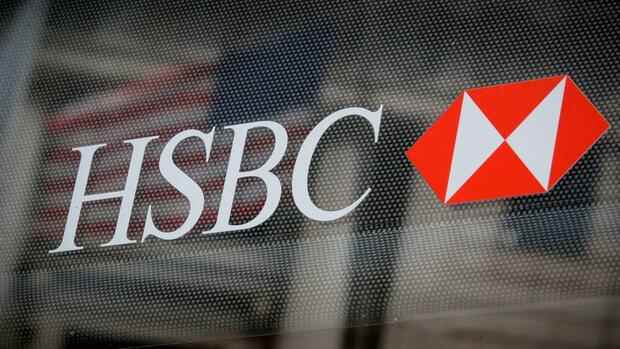Frankfurt Actually, Stuart Kirk should care about sustainability. After all, the manager heads the department for responsible investing at the asset manager of the largest European bank HSBC.
But at a conference of the British newspaper “Financial Times” a few days ago, Kirk gave a lecture entitled: “Why investors don’t have to worry about climate change”. According to information from insiders, HSBC has now suspended Kirk and launched an internal investigation to clarify how the controversial lecture came about. The Financial Times first reported on the suspension.
During his presentation, Kirk complained that throughout his 25-year career in the financial industry, he’d encountered “nuts” who predicted the “end of the world.” His first slide was titled, “Unfounded, strident, partisan, self-serving, apocalyptic warnings are always wrong.” The slump in global economic growth that the Intergovernmental Panel on Climate Chance (IPCC) is predicting for the coming decades is completely irrelevant, Kirk argued .
Kirk also presented a chart showing a correlation between media mentions of the term “climate catastrophe” and global stock prices. His conclusion: the more often warnings are given about the harmful consequences of climate change, the more prices rise.
Top jobs of the day
Find the best jobs now and
be notified by email.
Kirk, who is responsible for integrating sustainability risks and opportunities across asset classes at HSBC Asset Management, also targeted former Bank of England Governor Mark Carney and other policymakers for exaggerating the risks of climate change.
>>Read here: Bundesbank board member Sabine Mauderer: “Climate risks are also financial risks”
In the days after Kirk’s presentation, three HSBC managers tried to limit the damage: Nicolas Moreau, head of HSBC’s asset management division, emphasized that the statements “in no way reflect the views of HSBC Asset Management or the HSBC Group”. HSBC considers climate change to be one of the “most serious threats facing our planet” and is committed to helping clients transition to a sustainable future.
Speaking on the LinkedIn careers network, Chief Sustainability Officer Celine Herweijer said: “It is important to make absolutely clear that these views are absolutely not shared by me or anyone else on the HSBC leadership team. Also on LinkedIn, CEO Noel Quinn stressed that HSBC wants to play a leading role in funding the industry’s transition to a low-carbon world.
Kirk has been with HSBC since early 2020 and assumed his current role in July 2021. He previously worked in wealth management at Deutsche Bank.
HSBC wants to play a leading role in the transition to a low-carbon world, says the bank boss.
(Photo: Reuters)
HSBC has committed to becoming carbon neutral by 2050. According to the environmental activists from Urgewald, the guidelines of the bank and its asset management division on fossil fuels are “by no means exemplary and urgently need to be more ambitious”.
In the latest Banking on Climate Chaos report from various environmental organizations, HSBC ranks sixth out of 60 international banks in financing 100 leading oil, gas and coal companies with expansion plans – with a total of almost $55 billion for the Years 2016 to 2021.
On Tuesday of this week, the British central bank will present the results of its climate stress test. According to the rating agency Fitch, this is the toughest test to date of climate risks in financial institutions’ balance sheets. The Fitch experts assume that some institutions will not meet the minimum requirements in the 30-year stress scenario.
Controversial discussions again and again
Urgewald activists welcome the suspension of the HSBC banker and describe his statements as “embarrassing”. “To insult such a renowned international cooperation as the IPCC and also the civil society involved in climate protection with flat words shows an unbelievable degree of ignorance,” criticizes Urgewald campaigner Katrin Ganswindt.
HSBC is not the only big money house where the issue of sustainability is causing internal discussions. A few days ago it became known that the investment bankers at Deutsche Bank applied for a mandate for a bond issue from the Australian coal group Whitehaven last year, even though the institute’s internal guidelines prohibit financing for companies planning new coal projects.
Whitehaven has stated that it wants to develop a new mine and significantly expand a second one. The bank’s committees put the brakes on the in-house investment bankers in autumn 2021 and finally stopped participation in the Whitehaven bond.
More: Environmental activists criticize conflicts of interest at Deutsche Bank.
